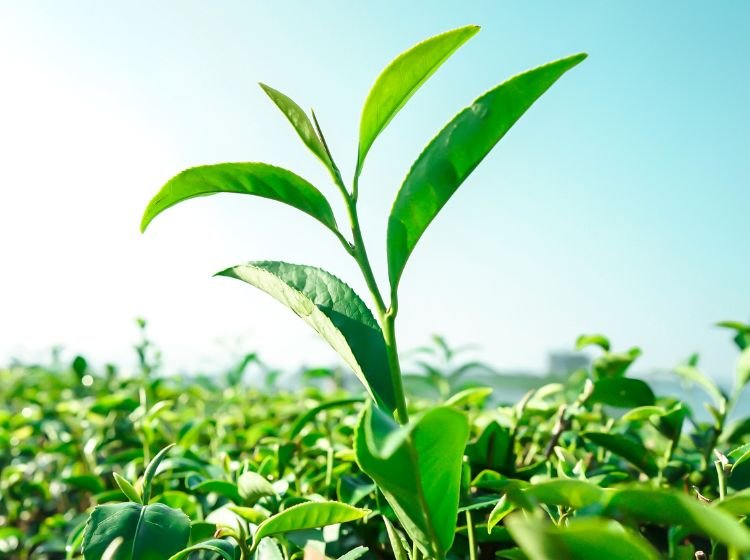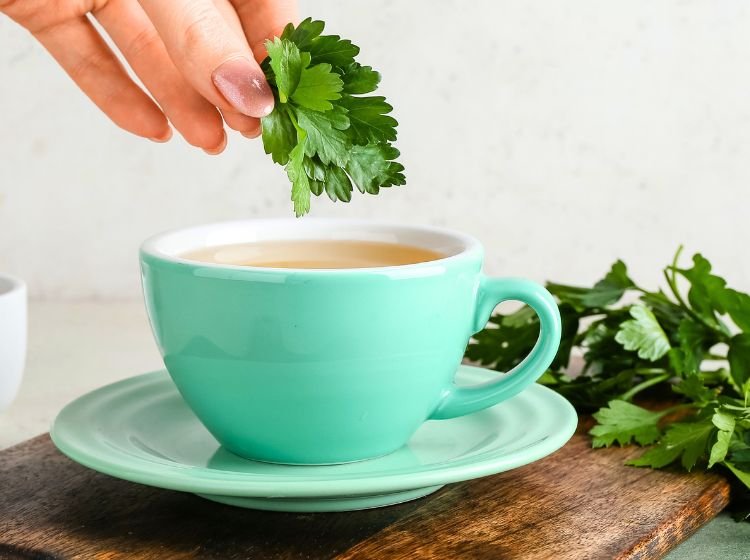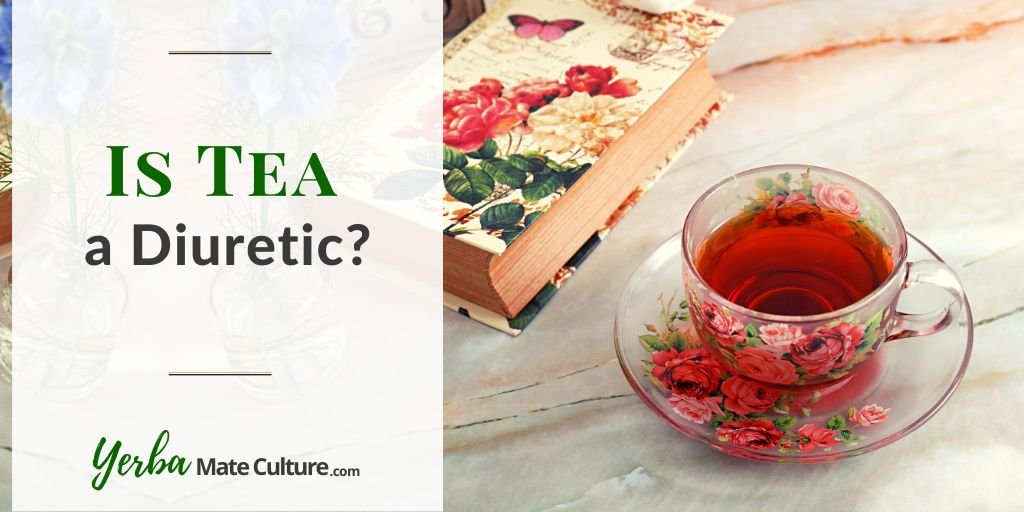It can seem like there’s a new “pro” or “con” article on the health effects of tea coming out every week. Some people worry about the diuretic effect of tea.
A diuretic is a substance that promotes increased urination. Like coffee, some teas that have a diuretic quality can potentially affect hydration when consumed in large amounts.
But is this something you should worry about?
In this guide, we will explore the diuretic effects of different types of teas. I will also explain why you don’t have to worry too much about dehydrating your body by drinking tea even though some teas have a diuretic effect.
Why Tea Is a Natural Diuretic
Tea is a natural diuretic by default simply because it contains caffeine. Real teas are always made using leaves from the tea plant (Camellia sinensis) that are rich in caffeine.

While it’s true that some non-caffeinated herbal teas do have diuretic effects, these are exceptions that will be covered a little further down in this article.
Most people already know that water is often the best option when attempting to stay hydrated. While caffeinated beverages can actually help us to meet our daily fluid intake, there’s a fine balance to the science of it.
We know that caffeine increases the production of urine by prompting the body to rid itself of excess water and sodium.
Generally, the water intake associated with drinking a cup of coffee or tea helps to balance out the dehydrating effect of the caffeine. However, drinking high doses or heavy concentrations of caffeine in a short amount of time can rapidly increase urine production to leave us dehydrated.
So how much caffeine is too much?
People are generally in the safe zone with this as long as they stick within the U.S. Food and Drug Administration’s daily total caffeine limit of 400 milligrams.
As long as you drink less than than cups of tea you should stay way under this limit. Just remember that you also have to take other caffeinated (e.g. coffee, energy drinks) drinks into consideration.
Which Teas Are Diuretic?
The general rule is that teas that contain higher amounts of caffeine also have stronger diuretic effects.
Keep in mind that brewing methods can also impact your experience as you run through the list below. For example, steeping a less caffeinated tea longer can produce a greater diuretic effect compared to quickly steeping a tea with a high concentration of caffeine.
Black Tea

According to a 2010 study drinking Sri Lankan black tea has a mild diuretic effect. The evidence of this study was enough for the researchers behind it to declare that the traditional claim that black tea acts as a diuretic is valid.
This makes sense when you consider that a cup of black tea’s average caffeine content of 47 milligrams is the highest among all teas.
Green Tea

The diuretic effects of green tea have been known for thousands of years. Thus, green tea is often used as a stimulant and diuretic in traditional Chinese and Indian medicine.
What’s more, traditional herbalists have viewed this as a benefit for cleansing the body instead of a dehydration concern.
The modern science also supports these claims. According to a paper published in 2019 “Green tea causes an increase in glomerular filtration rates by increasing blood flow and cardiac output, which may contribute to the diuretic activity.”
Interestingly, researchers have also discovered that the diuretic effect of green tea is enhanced when it’s combined with medical diuretics. For example, a 2014 study on the combined effect of green tea extract and a popular diuretic called hydrochlorothiazide (HCTZ) which is often prescribed for people with edema saw a significant increase in diuretic activity.
Other Real Teas
Oolong tea, white tea, and pu-erh tea are all likely to have mild diuretic effects. While the diuretic effect of these teas has not been widely studied, they all contain caffeine and many brands market them as digestive aids, weight-loss aids, and diuretics.
The improvements in digestion and weight loss that some people experience after drinking pu-erh tea regularly are most likely tied to the fact that this is a fermented tea that helps to introduce healthy, beneficial bacteria into the gut.
Diuretic Herbal Teas
Most herbal tea infusions don’t have a diuretic effect. That’s because they don’t have any caffeine.
However, certain teas have diuretic properties from caffeine or other compounds.

Here are some common diuretic herbal teas:
- Parsley tea is commonly used to stop water retention. While this tea has been used in folk medicine for generations, modern science confirms that it increases urine production.
- Dandelion tea is another popular homemade remedy for water retention due to the fact that its high potassium content is believed to help increase urine output.
- Yerba mate tea and guayusa tea originate from South America and have diuretic properties due to their high caffeine content.
- Hibiscus tea has traditionally been used for treating high blood pressure and according to research it also has a diuretic effect.
- Moringa tea is another popular herbal tea traditionally used for hypertension and a 2022 study done on rats also confirmed its diuretic properties.
Is Tea Hydrating or Dehydrating?
In truth, it’s hard to give anything other than a mixed answer for this one. Ultimately, the hydrating or dehydrating effect of tea really comes down to its caffeine content and how much you consume.
Researchers claim that caffeine needs to be consumed in amounts greater than 500 milligrams in order to have a dehydrating effect. That works out to roughly 10 cups of black tea in a day.
While some people certainly can get there, it’s quite uncommon to drink such quantities of tea.
Researchers also believe that caffeinated drinks are actually as hydrating as water when consumed in moderation. That means that a cup of tea can count toward your total daily water intake.
Need more convincing?
Two really interesting studies highlight why tea is “no big deal” when it comes to dehydration worries.
In the first study, researchers looked at 50 heavy coffee drinkers who consumed either 26.5 ounces of coffee or the equivalent quantity of plain water for three days in a row. Scientists could not observe any difference in hydration markers between the “coffee” days and “water” days. This is big news for tea and coffee drinkers.
In another study involving 21 men who drank either four or six cups of black tea or the equivalent amount of boiled water over 12 hours, researchers did not notice any differences in urine production or hydration levels. As a result, the researchers behind the study concluded that black tea is equally as hydrating as water when consumed in quantities of up to six cups per day.
That’s more big news for anyone wanting guiltless cups of tea!
Which Is More Diuretic Coffee or Tea?
It appears that caffeine content is directly linked with a beverage’s diuretic effect. The simple answer is that coffee is more diuretic than tea on an ounce-per-ounce basis simply because it contains more caffeine.
However, it’s hard to do an apples-to-apples comparison between coffee and herbal teas because those teas are relying on other compounds instead of caffeine to produce diuretic effects.
Final Thoughts on the Diuretic Effect of Tea
There’s strong evidence that most teas have at least some diuretic effect. However, having one or two cups of tea has such a weak effect that you’re unlikely to notice it.
However, I have noticed that if I drink a few cups of strong black tea or yerba mate tea, I soon need to go to the toilet. Our bodies react differently to different foods and drinks, but this indicates that tea truly seems to have a diuretic effect on me.
The good news is that according to research, this mild diuretic effect doesn’t appear to be enough to actually make tea dehydrating.
In fact, having several cups of tea per day may actually be a great way to boost your water intake while also getting some extra energy and antioxidants.






